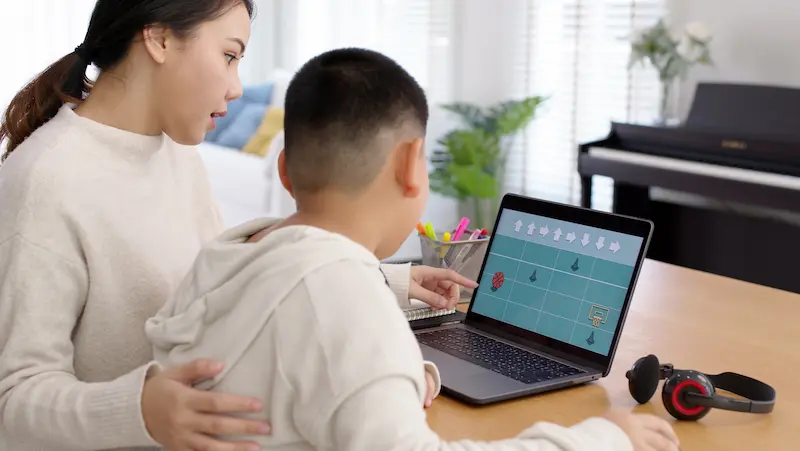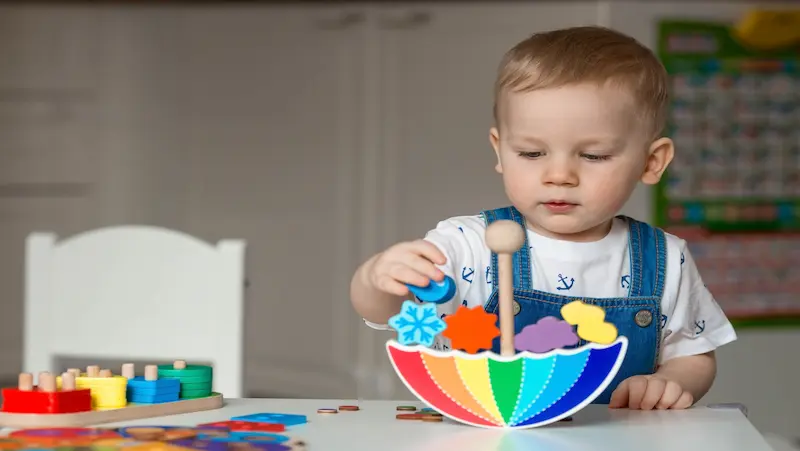As parents, we all want the best for our children, especially when it comes to their education. Homeschooling provides a unique opportunity to tailor learning experiences to our children’s individual needs and interests. One powerful way to enhance their homeschooling journey is through games. In this guide, we will explore seven fantastic games that not only entertain but also empower young minds, making learning fun and effective.
Table of contents
Why Games are Beneficial for Homeschooled Kids
Games have a remarkable ability to engage children and ignite their curiosity. One of the essential homeschool tips for fostering a love of learning is to incorporate educational games that engage young minds while making the learning process enjoyable and effective.
They create an immersive learning environment where kids actively participate and apply problem-solving skills, creativity and critical thinking skills for kids. Furthermore, games promote social interaction, teamwork, and communication, which are essential for a child’s overall development.
How to Choose Appropriate Games
When selecting games for homeschooling kids, keep in mind their age, interests, and educational goals. Look for games that align with the subjects they are studying, encourage collaboration, and foster creativity. The best games strike a balance between entertainment and learning, making education enjoyable and effective.
Board Games for All Ages
Board games are a fantastic way to bring the family together for quality bonding time while imparting valuable skills to homeschooling kids. Incorporating board games for kids into homeschooling can be a delightful way to enhance learning. Games such as “The Game of Life” teach decision-making and financial literacy, “Ticket to Ride” explores geography, and “Rush Hour” enhances problem-solving. Integrating educational online games for kids and video games into homeschooling can yield valuable learning outcomes.
Exploring the World: Ticket to Ride
Ticket to Ride is a captivating board game that takes players on a train adventure across various countries. It promotes geography knowledge, strategy building, and critical decision-making. This game is suitable for all ages and offers numerous expansions for added excitement.
Problem-Solving Fun: Settlers of Catan
Settlers of Catan is a classic strategy game that encourages resource management and negotiation. Players collect resources to build settlements and cities, stimulating critical thinking and tactical planning. It fosters healthy competition and cooperation among family members.
Strategy and Resource Management: Carcassonne
Carcassonne is an excellent game for introducing kids to city building and spatial awareness. Players take turns laying tiles to construct medieval landscapes, and they must strategize to maximize their points. This game encourages creativity and develops spatial thinking skills.
Educational Video Games

Harness the power of technology to make learning exciting and interactive with educational video games.
Science Adventure: Kerbal Space Program
Kerbal Space Program is an educational video game that inspires young minds to explore space science. Players design and manage their space program, learning about physics, engineering, and space exploration in a fun and immersive way.
Historical Exploration: Civilization VI
Civilization VI is a turn-based strategy game that lets players build and lead their civilization through the ages. It’s a fantastic way to introduce history and geography concepts while developing critical thinking and decision-making skills.
Creativity Unleashed: Minecraft
Minecraft is a beloved sandbox game that encourages creativity, problem-solving, and collaboration. Kids can build and explore virtual worlds while learning about architecture, mathematics, and even coding.
Outdoor Games for Physical Activity
Homeschooling isn’t all about sitting indoors; physical activity is equally important for kids’ overall development.
Nature Scavenger Hunt
Organize a nature scavenger hunt in your backyard or nearby park. This game encourages observation, curiosity, and appreciation for the environment.
Backyard Olympics
Host a family Olympics day with various physical challenges and friendly competitions. This game promotes sportsmanship, teamwork, and physical fitness.
Interactive Fitness with Just Dance
Just Dance is an energetic video game that gets kids moving and grooving to popular songs. It’s an enjoyable way to stay active and improve coordination and rhythm.
Social and Cooperative Games
Games that encourage social interaction and cooperation are invaluable for homeschooling kids.
Building Communication Skills: Codenames
Codenames is a word-based party game that enhances communication and deductive reasoning. Players work in teams to guess secret words based on one-word clues provided by their teammates.
Teamwork and Deduction: Escape Room Games
Escape room board games challenge players to work together and solve puzzles to “escape” from various scenarios. These games promote teamwork, critical thinking, and problem-solving skills.
Collaborative Storytelling: Once Upon a Time
Once Upon a Time is a storytelling card game that encourages imagination and creativity. Players collaboratively craft a fairy tale using the elements on their cards.
Brain-Teasing Puzzles

Puzzles for kids provide entertaining challenges that promote cognitive development and problem-solving skills. Challenge your homeschooling kids’ minds with brain-teasing puzzles.
Spatial Awareness: Rush Hour
Rush Hour is a single-player puzzle game that improves spatial reasoning and problem-solving skills. Kids must maneuver vehicles to clear the path for the red car to exit the grid.
Logic and Deduction: Mastermind
Mastermind is a classic code-breaking game that enhances logical thinking and deduction. Players use clues to guess the secret code set by their opponent.
Pattern Recognition: Qwirkle
Qwirkle is a colorful and engaging game that strengthens pattern recognition and strategic planning. Players must create lines of tiles that share either color or shape without repeating.
Card Games for Family Fun

Card games are perfect for quick and enjoyable learning sessions with the whole family.
Classic Card Games: Crazy Eights
Crazy Eights is a simple and entertaining game that reinforces number recognition and matching skills. It’s ideal for young learners and a great way to introduce basic math concepts.
Engaging in brain teasers games for kids can significantly contribute to the development of their cognitive abilities. These puzzles, which often require creative thinking and logical reasoning to solve, stimulate various areas of the brain responsible for critical thought processes.
Quick and Entertaining: Sushi Go!
Sushi Go! is a fast-paced card-drafting game that promotes strategic thinking and decision-making. It’s easy to learn and perfect for family game nights.
Learning Math with Uno
Uno is a popular card game that enhances number recognition, basic arithmetic, and critical thinking. It’s an excellent way to make math enjoyable and less intimidating.
Conclusion
Incorporating games into your homeschooling routine can transform learning into an exciting adventure for your kids. By choosing age-appropriate and educational games, you can enrich their minds while nurturing essential life skills such as teamwork, critical thinking, and creativity. Remember to strike a balance between play and learning, as this approach will empower your young minds to become lifelong learners who thrive in both education and life. So, let the games begin and watch your homeschooling experience blossom!
Invest in your child’s education with Brightchamps‘ dynamic courses in robotics, coding, and financial literacy. Watch them thrive and excel in an ever-evolving world.
Frequently Asked Questions(FAQ’s)
A1: The legality of homeschooling varies from country to country and even within different states or provinces. In many countries, including the United States, Canada, the United Kingdom, Australia, and many European countries, homeschooling is legal and regulated by specific laws or regulations. However, it’s essential to research and understand the homeschooling laws in your specific location to ensure compliance with local regulations.
A2: The cost of homeschooling can vary significantly depending on various factors. Homeschooling expenses may include curriculum materials, textbooks, educational resources, online courses, field trips, and extracurricular activities. Additionally, there may be costs associated with joining homeschooling co-ops or hiring tutors for specialized subjects. Some families may choose free or low-cost online resources, while others invest in comprehensive homeschooling programs. The overall cost of homeschooling can be tailored to fit a family’s budget and educational preferences.
A3: Yes, you can homeschool your child even if you are not a certified teacher. In many countries, homeschooling regulations do not require parents to have teaching credentials. As the primary educator of your child, you have the flexibility to design a homeschooling curriculum that meets your child’s needs and interests. Numerous resources, online courses, and curriculum packages are available to assist parents in creating a well-rounded and effective homeschooling experience.
A4: One common concern regarding homeschooling is the socialization of homeschooled children. However, homeschooling families have various opportunities for socialization. Homeschooled children can participate in local homeschooling groups, co-ops, and community events, where they can interact with peers and engage in group activities. Additionally, extracurricular activities such as sports, arts classes, and clubs can provide further opportunities for social interaction. Homeschooling also allows for more personalized socialization, as children can engage with individuals of different ages and backgrounds, both within and outside the family.
A5: Homeschooling allows for a customized approach to education, which is especially beneficial when a child faces challenges in specific subjects. As a homeschooling parent, you have the flexibility to adapt the teaching methods and materials to suit your child’s learning style and pace. If your child is struggling with a particular subject, you can provide additional support, incorporate hands-on learning activities, or seek the help of tutors or online resources. Homeschooling also allows for more one-on-one attention, enabling you to address your child’s academic struggles more effectively.


 We are an army of educators and passionate learners from BrightChamps family, committed to providing free learning resources to kids, parents & students.
We are an army of educators and passionate learners from BrightChamps family, committed to providing free learning resources to kids, parents & students.







